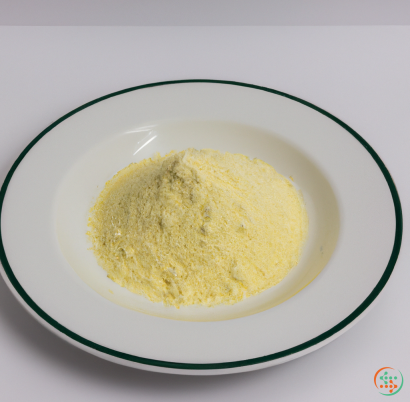Beef Heart
, describing it's nutritional values and benefits
A beef heart is a nutrient-rich organ meat sourced from cows that serves as a dietary staple in many parts of the world. It’s a delicious and nutritious way to increase your nutrient intake while incorporating a meaty flavor into dinner. Despite its intimidating appearance, it’s surprisingly easy to cook and boasts a myriad of health benefits.
High in Protein and Low in Fat
Beef heart is loaded with protein and low in fat, so it’s an incredibly filling yet still light meal. It’s loaded with essential vitamins and minerals, including iron, zinc, selenium, and more, making it an excellent source of nutrition. A single serving of beef heart contains around 17 grams of protein, making it a great option for those looking for an alternative to red meat. It also contains B vitamins, which are necessary for proper nerve functioning, as well as iron, which helps your body produce energy. Additionally, the heart has a significant amount of amino acids, making it a great choice for muscle building and promotion of an active lifestyle.
A Delicious Addition to Any Dish
Despite its unappetizing appearance, beef heart is surprisingly flavorful. Its texture is slightly chewy, similar to beef tongue or tripe, but still maintains a tenderness like a steak. It’s incredibly versatile and can be easily added to soups, stews, stir-fries, and other dishes. Beef heart makes a great addition to tacos, burritos, and other Mexican-inspired dishes. When cooked properly, it has a unique and savory flavor that’s sure to be a hit with even the pickiest of eaters.
Impressive Nutritional Profile
The nutritional value of beef heart is astounding. A single serving of beef heart contains around 143 calories, 17 grams of protein, and just 2.5 grams of fat. It’s also incredibly rich in zinc and selenium, which are both essential minerals for the human body. Zinc helps the body produce enzymes, aids in wound healing, and aids in the production of hormones. Selenium helps to regulate cell metabolism, strengthens the immune system, and may even help protect against cancer.
Heart Health Benefits
There are many potential heart health benefits associated with beef heart. It’s high in healthy fats like omega-3 fatty acids, which can help reduce inflammation and may help reduce your risk of cardiovascular disease. It also contains an array of vitamins and minerals that boost heart health, including B vitamins, magnesium, and potassium. Beef heart is also a great source of Coenzyme Q10, which helps prevent oxidation and cell damage in the heart.
Unbeatable Taste and Nutrition
Beef heart packs an impressive nutritional punch and is also incredibly flavorful. When cooked properly, it’s sure to be a hit with everyone at the dinner table. It’s an excellent source of protein, B vitamins, minerals, and healthy fats; all of which provide numerous health benefits to those who make it part of their diet. Beef heart is a great way to incorporate a nutrient-dense organ meat into your diet and make sure you’re getting all the vitamins and minerals you need.
How Does a Beef Heart End Up on a Dinner Plate?
If you’ve ever been to a steakhouse and glanced over the menu, you’ve probably noticed that beef heart is not a common item. While it might not be a menu staple, beef heart has been providing chefs with a unique flavor for centuries. So, how does a beef heart end up on your dinner plate? The answer involves an intricate journey that begins on the farm, winds through the commercial processing plant and ultimately ends up in the hands of a chef.
From Farm to Processing Plant
The journey of a beef heart begins on the farm. A cattle farmer raising cows for their hearts will be sure to care for the animals to ensure good health and optimal nutrition. Fattening cows, especially those intended to provide large hearts, require special diets and plenty of rest. This process can take anywhere from 18 to 24 months, depending on the farmer’s goals. During this time, the cow’s heart will gradually grow in size and weight to the desired outcome.
Once the cattle farmer has achieved the desired size and weight of the heart, they will take the animal to a processing facility. At the processing facility, the cow will be humanely slaughtered and the meat will be sorted, packed and graded for quality. For example, a potential retailer might request Grade A heart or Prime grade heart from the processor. The processor will also minibrise and mince the heart, and then distribute it to the appropriate destination such as a grocery store, restaurant or food processor.
Making Its Way To the Chef
Once the beef heart has been processed, the next step is for it to be transported to the chef who will create the final dish. This will depend on the customer's preferences and the chef's ability to source the best cuts or grades of beef heart. Many high-end steakhouses will source their beef heart from specialty farms that are dedicated to raising the highest quality beef heart.
The beef heart should then be marinated, seasoned and cooked. Marinating beef heart can help retain moisture and provide additional flavor to the dish. Five Marinades That Bring Out the Best in Beef Heart are:
1. Red Wine and Garlic marinade – This marinade is perfect for beef heart and will leave a tender and delicious flavor when cooked.
2. Soy Sauce and Worcestershire Sauce marinade – Together, these two ingredients make the perfect marinade for beef heart.
3. Vinegar and Mustard marinade – This marinade is great for adding a tangy flavor to beef heart.
4. Fresh Herbs and Lemon Juice marinade – Great for bringing out a sweeter flavor in beef heart.
5. Salt and Pepper marinade – This is a classic marinade that you can use for any cut of beef heart.
After the beef heart has been marinated, the heart can then be cooked. One way to cook the beef heart is to grill or broil the heart over medium-high heat. When being cooked, it is important to realize that a beef heart is different than other cuts of beef and will require a shorter cooking time. As such, the internal temperature should be monitored with a food thermometer to ensure the beef heart is cooked.
The Perfect Plating For A Perfect Meal
Once the beef heart has been cooked, it is time to plate the meal. Depending on the chef's personal style and the type of plate chosen, this can be a very creative affair. One way to present the beef heart and make it a star of the dish is to serve it with a delectable sauce. For example, a balsamic and red pepper sauce, as well as a creamy blue cheese sauce, can both work to enhance the flavor and appeal of the beef heart.
When plating the beef heart, it is important to consider the other dishes and foods that will be served. Mashed potatoes, fresh vegetables, and side dishes will fill out the plate. However, it is the beef heart that needs to take center stage. To do this, the chef can arrange the beef heart on the far left side of the plate, followed by a side dish, then mashed potato or other side, and finished off with a vegetable. Making sure that each dish interacts with the others on the plate will ensure a visually pleasing presentation, as well as a tasty meal.
Conclusion
Beef heart is one of the most unique cuts of beef and is not readily available in many stores. Nevertheless, when beef heart is sourced correctly and prepared correctly, it can provide a unique and delicious flavor that is sure to stand out on a dinner plate. The process from farm to dinner plate is as complex as any other item, and knowing the steps will ensure that a scrumptious meal is served. No matter what else is served for dinner, correctly prepared beef heart can be the star of the show.
| Vitamin D | 0.1 ug | |
| Vitamin D3 | 0.1 ug | |
| Vitamin E | 0.29 mg | |
| Vitamin K | 0.5 ug | |
| Vitamin B1 | 0.1 mg | |
| Vitamin B2 | 0.00121 grams | |
| Vitamin B3 | 0.00668 grams | |
| Vitamin B4 | 0.2288 grams | |
| Vitamin B5 | 0.0016 grams | |
| Vitamin B6 | 0.25 mg | |
| Vitamin B9 | 0.005 mg | |
| Vitamin B12 | 0.0108 mg |
| Calcium | 0.005 grams |
Daily Value 1.3 g
|
| Iron | 0.00638 grams |
Daily Value 0.018 g
|
| Magnesium | 0.021 grams |
Daily Value 0.4 g
|
| Phosphorus | 0.254 grams |
Daily Value 1.25 g
|
| Potassium | 0.219 grams |
Daily Value 4.7 g
|
| Sodium | 0.059 grams |
Daily Value 2.3 g
|
| Zinc | 0.00287 grams |
Daily Value 0.011 g
|
| Copper | 0.56 mg |
Daily Value 0.9 mg
|
| Manganese | 0.03 mg |
Daily Value 0.0023 g
|
| Selenium | 0.0389 mg |
Daily Value 0.055 mg
|
| Total Sugars | 0 ug |
per 100g
|
| Myristic acid (14:0) | 0.05 grams |
|
| Palmitic acid (16:0) | 0.61 grams |
|
| Stearic acid (18:0) | 0.67 grams |
|
| Arachidic acid (20:0) | 0.01 grams |
|
| Behenic acid (22:0) | 0.01 grams |
|
| Total Saturated fatty acids: | 1.35 g | |
| Oleic acid (18:1) | 0.94 grams |
|
| Palmitoleic acid (16:1) | 0.06 grams |
|
| Gadoleic acid (20:1) | 0.01 grams |
|
| Total Monounsaturated fatty acids: | 1.01 g | |
| Omega-6 Eicosadienoic acid (20:2) | 0.01 grams |
|
| Omega-6 Gamma-linolenic acid (18:3) | 0.01 grams |
|
| Omega-3 Alpha-linolenic acid (18:3) | 0.01 grams |
|
| Linolenic acid (18:3) | 0.02 grams |
|
| Linoleic acid (18:2) | 0.74 grams |
|
| Total Polyunsaturated fatty acids: | 0.79 g | |
| Cholesterol | 0.21 grams |
|
| Total Sterols: | 0.21 g | |







